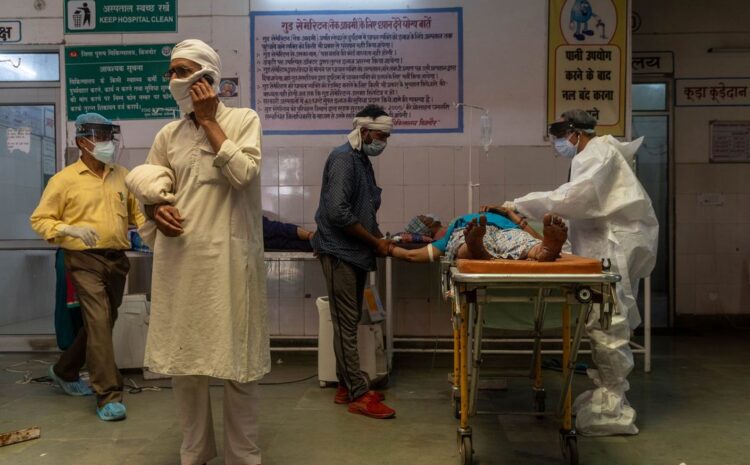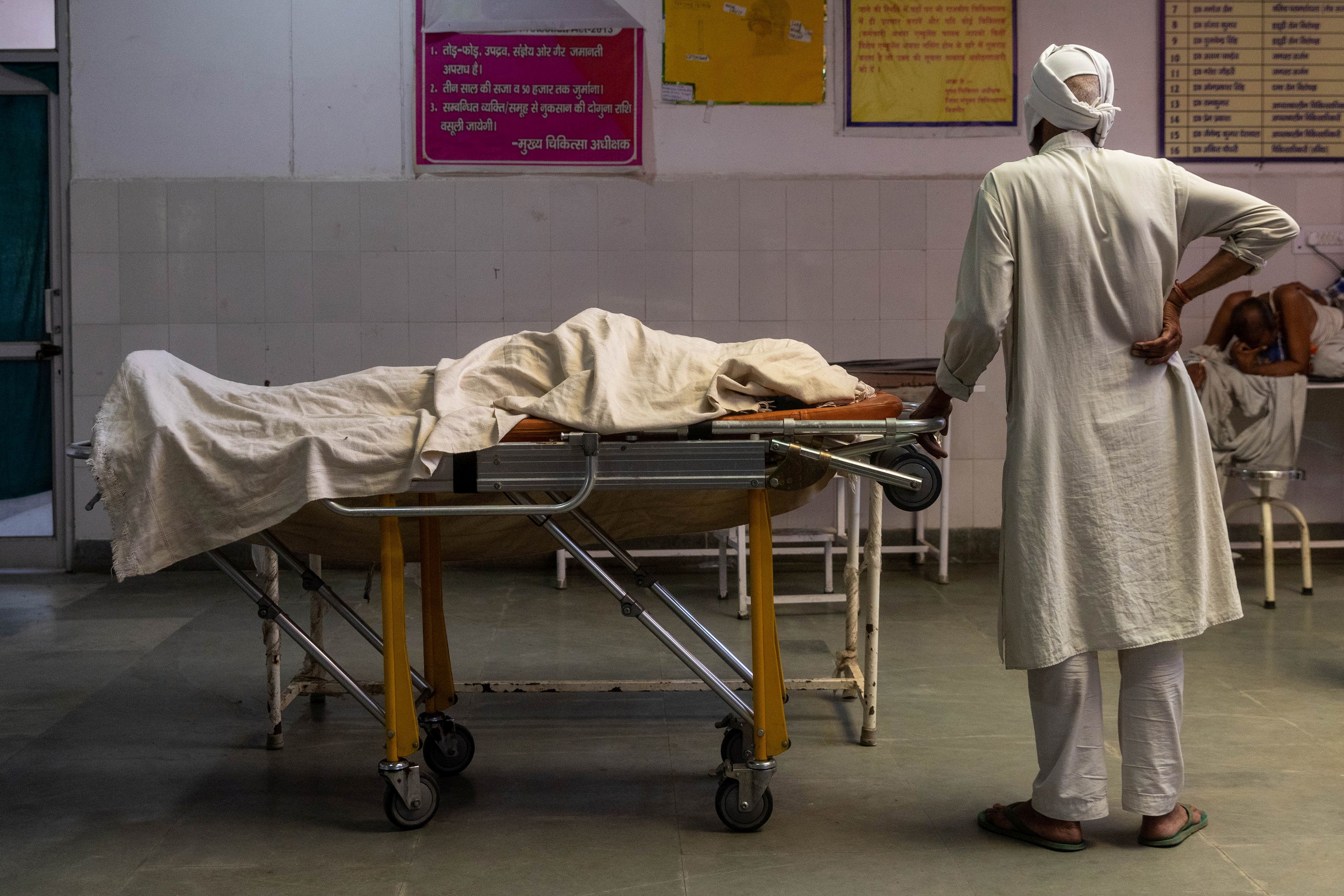
A man stands next to the body of his wife, who died due to breathing difficulties, inside an emergency ward of a government-run hospital, amidst the coronavirus disease (COVID-19) pandemic, in Bijnor, Uttar Pradesh, India, May 11, 2021. REUTERS/Danish Siddiqui
On another bed, a young man who had tested positive was sitting up and making an effort to breathe while two members of his exhausted family were sprawled on the tiny bed.
The one doctor on duty in the ER in this hospital in Bijnor, a town in India’s most populous Uttar Pradesh state, 180 km east of Delhi, can barely attend to the stream of patients that are coming in, in rickety ambulances or in the back of cars.
India’s brutal second wave has reached the small towns and the countryside, ripping through a fragile health system not equipped to deal with such a large public health crisis.Doctors are hard to come by, intensive care units are expensive and scarce, and patients are packing into emergency rooms. People flit in and out, trying to help with everything from procuring oxygen cylinders to artificial resuscitation.
“We are trying our best, the numbers are large,” said Ramakant Pandey, the top district official at Bijnor. Unlike the first wave, this one is more severe, he said.
“We are also not getting much time between the time a person gets infected to the time he becomes serious.”
The seven-day average of daily infections nationwide hit a record 390,995 on Tuesday, with 3,876 deaths, according to the health ministry.
On Tuesday, four people died in the Bijnor hospital ER within the space of an hour including Jagdish Singh, 57, who had arrived just a few minutes before. His son Gajendra said he took him to hospital believing it would help raise his oxygen levels.
At the hospital he said he ran around trying to get the oxygen going and then he lost his father.
Doctor Naresh Johri who was running the ER along with two assistants said he was not in a position to speak to the press in line with service rules.
Medical oxygen has become a major concern with top hospitals in Delhi and other major cities issuing SOS calls that they were running out of supplies of the life saving gas because of the crush of patients.
The government is now trying to arrange supplies from abroad and from local industry. While the situation in Delhi has improved, smaller towns like Bijnor are struggling.
Many choose not to go to hospitals believing they won’t get much care. In Jhaalu village, 11km from Bijnor, family members of Shakeel Ahmed were reading the Koran as he lay gasping for breath.
“We are trying to avoid hospitals, we don’t trust the system,” his brother Bhure Ahmed said.
Our Standards: The Thomson Reuters Trust Principles

